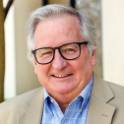People
The Carolina Autism and Neurodevelopment (CAN) Research Center at USC brings together
an interdisciplinary group of faculty, trainees, and staff from across campus to collaborate
and advance research in the fields of autism and neurodevelopment.
Meet our leadership team!
Founding Directors

Dr. Jane Roberts, Psychology
Dr. Roberts is a Carolina Distinguished Professor and former Associate Dean for Natural
Sciences in the McCausland College of Arts and Sciences. Her work focuses on understanding
the biological mechanisms that underlie cognitive and behavioral functioning in children
and adults with neurodevelopmental disorders such as autism, fragile X syndrome, and
ADHD. Dr. Roberts also serves as CAN's Executive Director.

Dr. Jeff Twiss, Biological Sciences
Dr. Twiss is a professor in the Department of Biological Sciences, SmartState Chair
in Childhood Neurotherapeutics, and Associate Dean for Research and Graduate Studies.
The Twiss lab uses molecular and cellular biology approaches to understand how neurons
develop and function. They are particularly interested in how post-transcriptional
regulation impacts neuron growth, focusing on subcellular mRNA translation and RNA
dynamics in neurons.
Steering Director

Dr. Caitlin Hudac
Associate Professor in Psychology
Dr. Hudac's research focuses on brain development in infants, children, and adults
with neurodevelopmental disorders (NDDs) and with a genetic mutation linked to NDDs.
She uses multiple techniques (EEG, ERP, eye tracking, fMRI) to target the underlying
biology associated with social attention and cognition.
Director of Clinical Services

Dr. Lindsay McCary
Clinical Professor in Psychology
Dr. McCary’s research and scholarship have been dedicated to improving systems of
care for individuals with autism spectrum disorder (ASD) and neurodevelopmental disorders (NDDs).
At the core of her work is a commitment to increasing access to high-quality, evidence-based
services while simultaneously enhancing the professional capacity of clinicians and
service providers. Dr. McCary integrates clinical practice, scholarly inquiry, and
interdisciplinary collaboration to address critical gaps in care and improve outcomes for individuals
with ASD and NDDs.
Executive Committee

Dr. Jessica Bradshaw
Associate Professor in Psychology
Dr. Bradshaw’s research focuses on early identification of autism spectrum disorder
(ASD) in the first years of life, including: 1) quantifying the emergence of, and
interrelations between, social behavior, visual attention, and motor skills in neonates,
infants, and toddlers, 2) identifying aberrant neurodevelopmental pathways that lead
to the emergence of autism spectrum disorder (ASD), and 3) translating these basic
findings to early detection and intervention strategies for ASD.

Dr. Sarah Edmunds
Assistant Professor in Psychology
Dr. Edmunds studies neurodiversity-informed interventions that address functional impairments
associated with autism spectrum disorder (ASD), such as in social communication, flexibility,
emotion regulation, and anxiety. She aims to investigate how to best implement, tailor, and increase accessibility for evidence-based interventions
for ASD within early intervention, school, and mental healthcare systems.

Dr. Daniel Foster
Assistant Professor in Pharmacolgy, Physiology and Neuroscience
Dr. Foster’s research is focused on understanding how specific neuronal circuits regulate
repetitive behaviors and habitual behaviors in rodents with the goal of identifying
novel therapeutic strategies for treating symptoms observed in numerous disorders
including autism spectrum disorder and obsessive-compulsive disorder.

Dr. Robert Hock
Associate Professor in Social Work
Dr. Hock’s research is aimed at promoting healthy parenting and family-centered service
delivery for families of children with autism spectrum disorder (ASD) and behavioral
health challenges. Dr. Hock is particularly committed to developing and testing family-system
interventions to improve caregiver mental health, strengthen parent-child relationships,
support co-parenting effectiveness, and increase service access. He has been an investigator
on five interventions for parents, and is currently an MPI (with Dr. Mark Feinberg)
of an NIH R01 Clinical trial (R01HD099295) titled, “Test of an Innovative, Scalable
Support Program for Parents with a Child Recently Diagnosed with Autism Spectrum Disorder.”

Dr. Abigail Hogan
Assistant Professor in Communication Sciences and Disorders
Dr. Hogan's research focuses on social communication in neurodevelopmental disorders
(e.g., autism spectrum disorder, fragile X syndrome), with an emphasis on factors
that contribute to social communication development in young children with neurodevelopmental
disorders. Dr. Hogan is especially interested in understanding the relationship between
physiological regulation, anxiety symptoms, and social communication difficulties
in young children.

Dr. Kristy Welshhans
Assistant Professor in Biological Sciences
Dr. Welshhans’ research focuses on molecular mechanisms in the brain that regulate the formation
of nervous system connectivity during development. Using both mouse and human cellular
models, her lab aims to identify how changes in these mechanisms may contribute to
Down syndrome and the intellectual disability phenotype.









